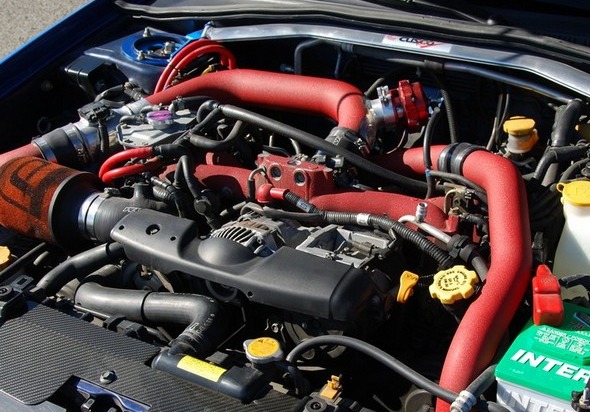What Are You Looking For?
The replacement frequency of car hoses is not fixed; generally, it depends on the condition of the hoses. Regular inspections are crucial, and if significant signs of aging, cracks, leaks, or deformities are observed, replacement becomes necessary. Under normal circumstances, car hoses can last for several years to over a decade. The specific duration depends on factors such as material, environmental conditions, and maintenance. Let's delve into how often car hoses should be replaced and their typical lifespan.

I. How often to replace car hoses:
The replacement time for car hoses varies based on factors such as the car's age, mileage, environmental usage, hose material, and quality. Unlike engine oil or air filters, hoses don't need periodic replacement, but regular checks and maintenance of the cooling system are crucial to ensure hose integrity. Here are some suggested inspection and replacement intervals:
Yearly check: Conduct a comprehensive check of the car's cooling system at least once a year, preferably in spring or fall. Inspect hoses for cracks, aging, leaks, and other issues.
Every two years: During regular maintenance intervals every one to two years, inspect all components of the cooling system, including water pumps, radiators, and hoses.
Mileage and age: The car's usage years and mileage also affect hose condition. For vehicles with longer service or higher mileage, especially exceeding 5 years or 100,000 kilometers, consider replacing various cooling system components, including hoses.
Visible issues: If noticeable problems like aging, cracks, leaks, or deformities are detected, immediate replacement is recommended to avoid potential cooling system failures.
In summary, regular checks of the car's cooling system and timely hose replacements are crucial. If unsure about when to replace hoses, it's best to consult a professional automotive technician for a more accurate assessment based on the car's condition and needs. Remember, maintaining a healthy cooling system contributes to the normal operation and lifespan of the engine.
II. How long car hoses typically last:
The lifespan of car hoses is influenced by factors such as material, environmental usage, and maintenance. Generally, under normal conditions, car hoses can endure for several years to over a decade. However, specific lifespan depends on the following factors:
Material quality: Different materials like rubber, silicone, and polymers can be used for car hoses. High-quality materials typically offer better durability and weather resistance, prolonging lifespan.
Environmental usage: Prolonged exposure to harsh conditions such as high or low temperatures and humidity can accelerate hose aging and damage.
Maintenance: Regularly checking and maintaining the car's cooling system, ensuring normal coolant levels and quality, can extend hose lifespan.
Regular usage: Frequent use of the car may subject hoses to frequent temperature cycles, potentially affecting lifespan.
Repair quality: Damaging hoses during repairs or using low-quality replacement parts may shorten their lifespan.
Installation quality: Proper hose installation is crucial. Incorrect installation may subject hoses to stress, twisting, or abrasion, affecting lifespan.
III. How to maintain car hoses:
Maintaining car hoses is essential to prolong their lifespan, ensure the normal operation of the cooling system, and guarantee the car's safety and reliability. Key points for hose maintenance include:
Regularly check coolant: Verify coolant levels and color. Coolant not only dissipates heat but also provides rust, corrosion, and freeze protection. Ensure the coolant level is within normal range, with bright color and no cloudiness or strange odors.
Periodically replace coolant: Follow the manufacturer's recommendations for periodic coolant replacement. Aging coolant may cause corrosion and blockages, impacting hose lifespan.
Regularly check for leaks: Periodically inspect hoses for signs of leaks, especially at connection points and bends. If leaks are detected, promptly repair or replace damaged hoses.
Regular visual inspection: Periodically inspect hose exteriors for cracks, aging, hardening, or other signs of damage. Take corrective action if issues are identified.
Monitor cooling system pressure: Excessive pressure in the cooling system can stress hoses. Regularly check cooling system pressure to ensure it stays within the normal range.
Periodically clean the cooling system: Use dedicated cooling system cleaning agents to remove deposits and impurities from the system, ensuring hoses remain unobstructed.
Avoid overheating: Prolonged exposure to high temperatures can impact hose lifespan. Avoid extended driving in high-temperature conditions to prevent overheating.
Maintain water pump and radiator: The water pump and radiator are integral components of the cooling system. Regularly inspect and maintain these components to ensure hoses work properly.
Avoid excessive twisting: During installation, disassembly, or repairs, avoid subjecting hoses to excessive twisting or force to prevent damage.
By following these maintenance practices, you can extend the lifespan of car hoses and contribute to the overall health of the cooling system.
If you need anything, please contact us,Customized different size/color/shape silicone rubber hose, making molds depending on your samples or drawings. FREE SAMPLES can be sent for your evaluation!
Over 20 years Professional Experience in Auto Accessories Field